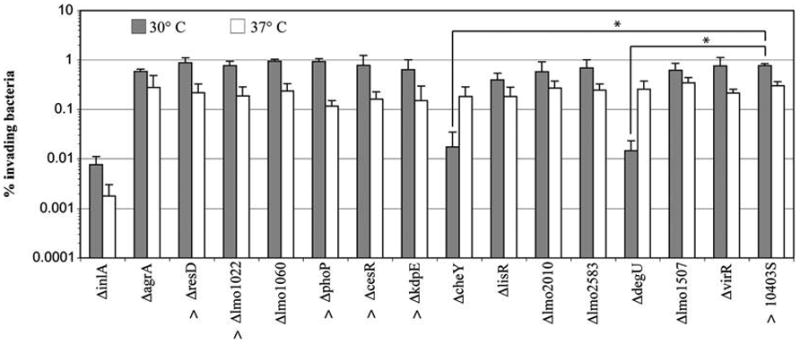FIG. 1.

Caco-2 invasion efficiencies of Listeria monocytogenes 10403S and 14 mutant strains with deletions in genes encoding RRs. Bacteria were grown to early stationary phase (growth to OD600 = 1.0, followed by 3 h of incubation) with aeration (i.e., shaking at 220 rpm) at 30°C or 37°C. Invasion assays were performed at 37°C. Data represent the mean of at least three biological replicates. Error bars represent SD. A ΔinlA strain was included as a control. Overall ANOVA analyses of the 14 RR mutants and the parent strain showed a significant effect of temperature ( p = 0.0051); all strains (except ΔcheY and ΔdegU) showed numerically higher invasion efficiencies when grown at 30°C. Strains showing statistically higher invasion after growth at 30°C than at 37°C ( p < 0.05; t-test) are denoted by ^. For 10403S and RR mutants, ANOVA showed a significant effect of strain on invasion efficiency for bacteria grown at 30°C ( p < 0.0001). For bacteria grown at 37°C this effect was not significant ( p = 0.3900). Among RR mutants grown at 30°C, ΔcheY and ΔdegU showed significantly lower invasion efficiencies than the parent strain ( p < 0.0001; post hoc Dunnett’s; denoted by *). RR, response regulator; ANOVA, analysis of variance; SD, standard deviation.
